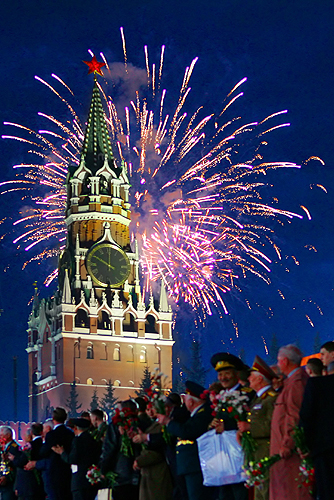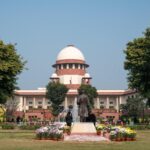By Krishna Jha
Remembering the dehumanising stories with all their bestialities, the compelling human ethos undefeated, stands victorious over the terror. This one truth alone has the right to wear the crown of thorns as humankind moves on, evolving ever, always.
May 9, 1945 was the Day when Second World War ended with all its barbarity. The great war had started on September 1, 1939, with invasion of Poland by Nazi forces. Soviet Union was attacked on June 22, 1941. Soviet people met their great mission of defending the achievements of socialism. It also prevented the fascist barbarity from destroying the world civilization.
Casualty figures compiled by the German military showed that between the start of the war and January 31, 1945, 3.5 million of the 4.4 million German casualties had occurred on the Eastern Front. The single Battle of Stalingrad cost the Germans as many casualties as the entire fighting in France, including both 1940 and 1944. When the German invasion of the USSR began in the summer of 1941, the Soviets faced 3.8 million soldiers and 7000 armoured vehicles. When the Western Allies made their greatly delayed landing in Normandy, they faced only 600,000 men and 2000 armoured vehicles.
Worse for the Germans, the crack Nazi units which had conquered France in six weeks in 1940 had been destroyed in the battles on the Eastern Front and rebuilt with raw recruits. In sacrifice, the USSR lost 27 million of her citizens in the war – by far the most of any country in the European conflict. Many of them were killed in combat, but millions more were murdered in prisoners of war camps and concentration camps or were among the civilians massacred or starved by the invaders.
Hitler’s assault was the largest ever in the history of any country. Consisting of thousands of fighters and bombers, tanks, guns and anti-aircrafts and about 4.5million troops, including those of fascist Italy and other countries of the fascist axis. The Nazi forces, supposed to be invincible, had not faced any defeat till the attack on Soviet Union. Initially, the Soviet Red Army had to retreat in the face of such massive assault. But the enemy was stopped by the end of 1941 at the Front line connecting Leningrad, Moscow and Stalingrad. The battle of Stalingrad was the decisive one for the future of Second World War. It lasted from May, 1942, to February, 1943, leading to the surrounding of millions of Nazi troops by Soviet Red Army.
It was the Soviet Union which, from the beginning, was the main enemy of Nazi Germany. What we now know as the Axis originally called itself the Anti-Comintern Pact. Long before what is widely considered the start date of World War II, Soviet soldiers had already fought bloody battles against German and Italian fascists in Spain, and against Japanese militarism in Manchuria. Throughout the period of appeasement by the capitalist powers, the Soviet government urged the strongest possible resistance to Nazi aggression, even going as far as to offer one million Soviet soldiers for the defense of Czechoslovakia – an offer which Czechoslovakia would probably have accepted, but the Polish government refused to allow transit or supply of this army through their country.
For the first time, in the Second World War, the Nazi forces had to beat a retreat in Battle of Stalingrad. Their main commander and lakhs of troops were taken as prisoners of war. The tide of Second World War began to turn by February, 1943. By 1944, the Soviet Red army entered the countries of Eastern Europe, driving back Nazi and fascist forces. The fascist governments were toppled one after the other. By April 1945, the Soviet troops entered Germany and then Berlin, Hitler committed suicide on April 30, 1945. The German troops surrendered to the Soviet Red Army on May 8, 1945 and to the Allied forces on May 9. Thus the curtain was dropped for the Second World War.
The number of Communists slain in the great battles had never been estimated. In the Nuremberg trials, when estimations of War crimes were made, each of the interrogations were the stories of how inhuman a human being could be. There was colossal damage to the Soviet economy, as thousands of factories and mills were destroyed, fields went arid, innumerable towns and villages were razed down. Yet they did not accept defeat as for themselves and also those whom they were defending at the cost of their own lives. As Lenin had said, ‘A nation in which the majority of workers and peasants realize that they were fighting for their own Soviet power, for the rule of the working people, for all that has been created by human labour, such a nation can never be vanquished.”
The working class and working people in the Soviet Union kept building socialism along with strengthening defence system. In the 18th congress of CPSU, held in March, 1939, it was stressed that the Soviet Union has entered the stage of completing the construction of socialist society. Despite the extreme war conditions, in the years of 1938 to 1940, the average annual output of the higher education colleges increased by more than 1.5 times.
Despite the adversities, socialist construction continued even during the great patriotic war that had reached its culmination in great victory. (IPA Service)

 Declaration Of Assets By Supreme Court Judges Means Nothing
Declaration Of Assets By Supreme Court Judges Means Nothing 